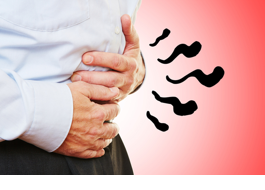Are Advanced Training Methods for You?
Just because that insane workout technique sounds excruciatingly awesome, that doesn't mean you should add it into your routine. You ...

Just because that insane workout technique sounds excruciatingly awesome, that doesn't mean you should add it into your routine. You ...
When is rest for the wicked but a necessity for gains? We let the science do the talking...
Popularized in the mainstream media & bodybuilding world, how does the G.I of a food actually apply when seeking physique ...
There is, without a doubt, a no more difficult area of the body to develop muscle size and strength, than ...
Picture yourself cranking out a heavy set of squats, your training partner counting down as rep number 20 of an ...
Looking for lazer focus and unabated energy during tough workouts? Tyrosine could be the superamino you need to swoop in ...
A common nutrition plan we use with clients involves rotating low carb days with higher carb days. Low carb days ...
Not all fats are created equal. Put simply, there are good fats and bad fats: the so called unsaturated and ...
One of the most frustrating and damaging metabolic conditions a person can have is insulin resistance. On one end, insulin ...
The Premise With repeated exposure to more and more demanding workouts, our muscles are forced to respond by becoming larger ...
Let’s face it – seeking out the right information can be confusing whether you are a bodybuilder or just an ...
For all of us trying to reach the full potential of our health, it is important to be sure that ...
In a previous article we discussed the key hormone leptin as it relates to hunger, weight gain and dietary adherence.
Leptin is classed as the ‘good’ hunger hormone that, when functioning normally, helps to control energy intake, hunger and overeating. In contrast, ‘ghrelin’ is often classed as the ‘bad’ hunger hormone, linked with increased hunger and poor dietary adherence.
Ghrelin is produced in the stomach and the levels produced are dependent on many factors including fed state (e.g. when you ate your last meal), other hormones such as leptin and growth hormone, and then things such as age, gender, fasting blood sugar and insulin levels.
Ghrelin’s daily mechanisms can be broken down into 2 simple stages:
1. We eat food, ghrelin decreases, this lowers hunger and our desire to eat.
2. Around 3 hours after eating, ghrelin levels start heading back to a baseline level, meaning hunger increases.
While the daily functions of ghrelin are normal and remind you to eat, the issue occurs when ghrelin levels change or become elevated, which means your perceived hunger increases. This often causes poor dietary adherence (think how many people quit diets or binge because they are excessively hungry), poor food choices, overeating, and rapid weight gain.
Understanding this hormone is therefore crucial for any physique competitor, bodybuilder, athlete, fitness enthusiast or coach. By keeping this hormone under control, dietary adherence and weight management will become much easier. These populations often engage in repeated dieting in an attempt to optimize their physique or performance, but research has shown that when you diet, ghrelin rapidly increases, which means hunger rapidly increases with it.
If you have dieted in the past, you will know firsthand how hunger constantly increases. The changes in ghrelin help explain this.
firsthand how hunger constantly increases. The changes in ghrelin help explain this.
Cummings et al. (2002) measured ghrelin levels following a 6 month weight loss intervention program and found a 24% increase in ghrelin levels. In addition, Rossow et al. (2012) investigated a male bodybuilder during a 6 month prep phase and witnessed around a 40% increase in ghrelin levels after 6 months of dieting.
The post-diet or post-contest weight rebound is well known, along with the psychological eating ‘issues’ many competitors face. This is likely caused from rapid elevations in ghrelin during the prep period, especially if these diets happen multiple times per year. It’s not unlikely in these cases that that ghrelin skyrockets on occasion, so don’t be surprised if you suddenly find yourself bingeing on 8000 calories in the buffet at some point!
Therefore, to make dieting easier, long-term weight management more successful, and people’s psychological relationship with food more healthy, one should aim to manage ghrelin and keep it within a normal range.
Here are some high level actionable dieting tips to help limit ghrelin and hunger adaptions caused by dieting:
Two example strategies for a fat loss calorie cycle may be:
It’s important to consider the integrative role that leptin and ghrelin play. One strategy used to counteract this is tracking calories / setting a daily food intake. Although this helps combat some of the free-eating issues, constant hunger and lack of satiety will likely make the weight-loss journey hard, possibly even unsuccessful in the long-term.
The issues apparent with leptin and ghrelin when dieting highlight the importance of a conservative growth phase, or “lean bulk”. A large amount of added fat mass may increase leptin resistance, and, furthermore, mean a longer time spent dieting to get rid of it, which will negatively impact ghrelin levels.